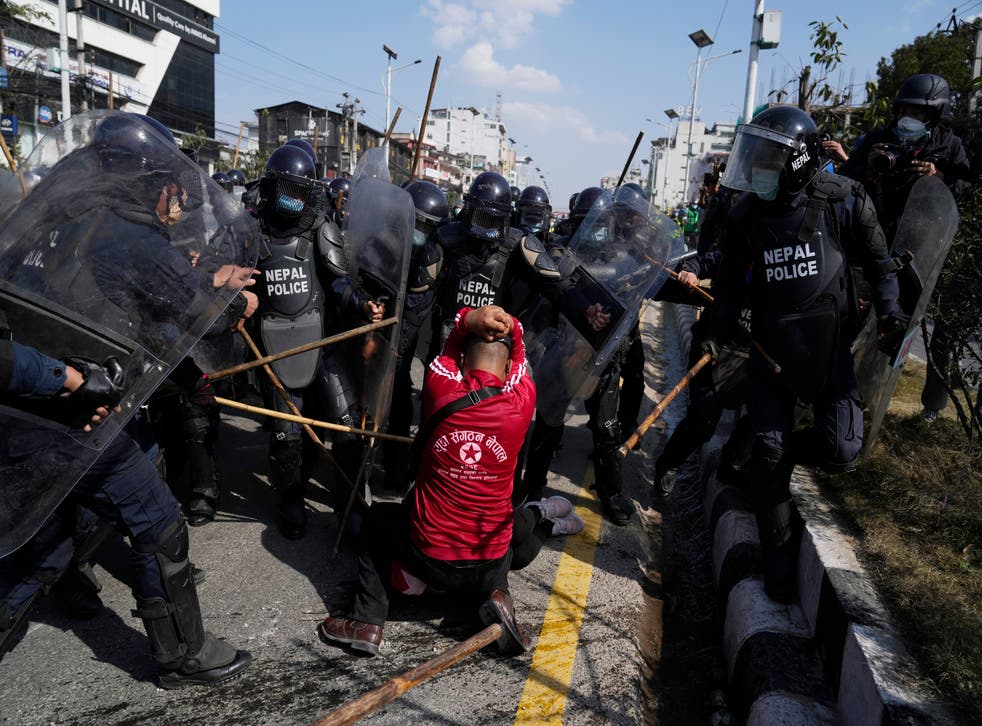Nepal has seen mass demonstrations over recent weeks against the involvement of a US foreign aid corporation in the country. On multiple demonstrations, protestors were met with water cannons, tear gas, and rubber bullets. Citizens’ concerns centre around the Millennium Challenge Corporation (MCC), a US foreign aid organisation which plans to invest $500 million in Nepal.
The MCC was established by the US congress in 2003, to fund development initiatives in countries its board deems ‘suitable’ for potential economic growth. It is separate from USAID, a main source of US foreign aid, and its agreements do not count as international agreements in US law or the Vienna Treaty.
In 2017, the MCC established agreements with the government of Nepal to provide a $500 million grant, that would both improve the nation’s roads, and develop 187 miles of electricity transmission lines – improving domestic power distribution, and facilitating greater electricity trade with India.
This year, on February 15, Prime Minister Sher Bahadur Deuba announced that the ratification of the MCC agreement would be tabled in parliament the following day. Though this vote was postponed due to disagreements between governing parties, February 16 still saw mass demonstration against the agreement. This included not only protests but also strikes from teachers and transport workers. A large demonstration in Kathmandu’s New Baneshwor area, near to the federal parliament resulted in police detaining 137 protesters.
Key concerns for protesters are that the agreement undermines Nepal’s sovereignty, and that it is more about serving US interests in the area than the nation’s development. In a recent discussion on the MCC, members of the Communist Party of Nepal (Unified Socialist) highlighted, “M.C.C. Clause (f) of section 605 of the Act provides that the use of the investment received in accordance with the agreement with this corporation is implemented in coordination with the US foreign aid.
“The project is therefore guided by the provisions of the US Foreign Assistance Act, 1961. The main goal of the US Foreign Assistance Act 1961 is to establish neoliberalism. It is to discourage the public and cooperative economy, to promote American capital and investment by ensuring an open and competitive market, and to discourage the socialist movement.”
Further protests against the agreement took place last Sunday, February 20. Continuing into the evening, the protesters were subsequently attacked by the police with tear gas and rubber bullets. Senior Superintendent of the Kathmandu Metropolitan Police, Sudeep Giri, justified the police force’s harsh response, arguing “We had to use force as the protesters attempted to force their way towards the parliament building.” 35 people were arrested.
Kathmandu journalist Shristi Kafle spoke on the protests to Global Times, saying, “There were many protests in Kathmandu against MCC. Even during the lockdown period, people came to the streets and protested saying that the MCC is totally against the sovereignty. They feel it threatens the Nepalese power sector, while some provisions in the pact place it above Nepal’s law. Many people think endorsement would compromise Nepal’s sovereignty and violate the country’s non-alignment policy.”
On the issue of sovereignty, a key concern is the proposed power of the corporation over specific areas. For example, regarding revenue from the project, “The agreement provides that the intellectual property of the MCC will last forever after the project is funded and that the revenue generated from the project will be permanently subject to the MCC’s permission when Nepal invests elsewhere,” according to CPN (Unified Socialist).
Both governing communist parties (Maoist Centre and Unified Socialist) have been sceptical of the MCC agreement, with Maoist Centre Chairman, Pushpa Kamal Dahal arguing, “The government tabled the MCC amid protest. Our Party and Parliamentary Party have already clarified that they would vote against the MCC in the Parliament.”
Maoist Centre member Narayan Kaji Shrestha reiterated, “Our Party’s conclusion and decision on the MCC Agreement is clear from the General Assembly and all subsequent discussions. The MCC Agreement will not be accepted and passed in the status quo without amending its provisions against national sovereignty, independence and interests. We stand by that.”
The deadline for the ratification of the agreement, stipulated by the US, is Monday February 28.
Philip English, is a member of the YCL’s Birmingham branch



